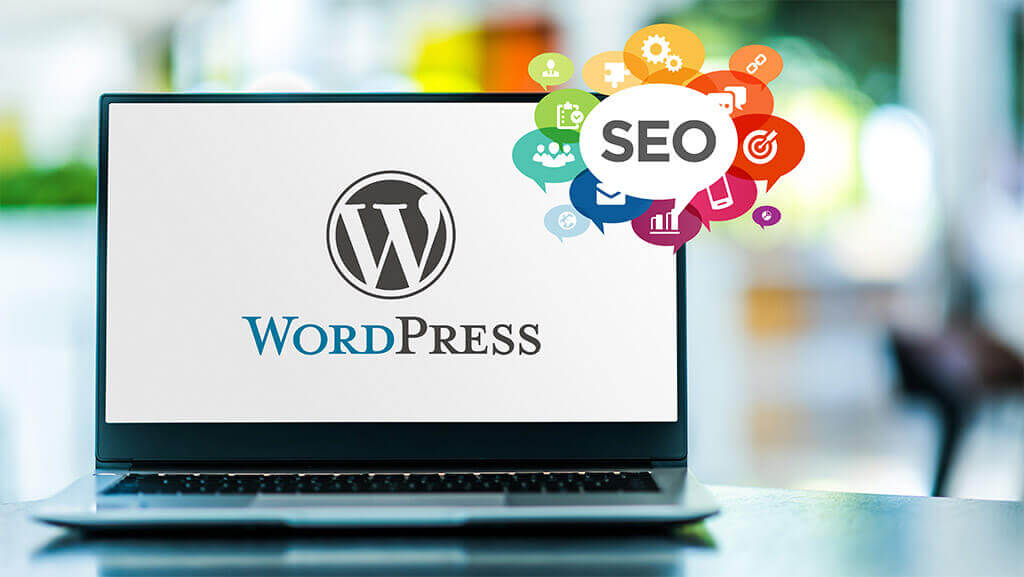
Post-COVID, we have witnessed retail stores being shut and running in losses. In such times E-commerce websites have paved the way for the maintenance and continuance of businesses online. These websites are known for their content management system (CMS) to allow customers to navigate the website easily. However, site owners desire a higher ranking in search engines to get more traffic due to competition.
Search Engine Optimization (SEO) at this junction becomes paramount. Owners ought to create sites that are SEO friendly as it helps to rank their website better on search engines.
In this blog post, we will look at the functions of SEO and how it affects WordPress, one of the most prominent CMS platforms.
SEO and Its Importance
Wouldn’t you like to be on their search page whenever potential customers search for a theme pertinent to your business?
Website owners for this purpose enhance their site by optimizing it to facilitate customers’ searched topics. They can customize their content and metadata, such as URLs, etc. If the website contains keywords that people search for, their site will rank higher.
By bringing in more traffic, SEO helps to increase your presence over search platforms. Along with growing prospective consumers, it also enables you to gain and maintain your dominance among the respective market competition.
SEO needs to be built by combining both SEO factors and a data-driven approach. The factors which help strengthen SEO for online platforms are as follows:
- Keywords
- Content
- Backlinking

1. Keywords
Keywords are one of the primary elements that help strengthen SEO. Keywords can be a single word or even a customer’s phrase to inquire about search engines.
Prospective customers often use these keywords to search for what they’re looking for. Having these keywords within your website would increase your ranking on search engines.
However, today we have moved away from building SEO primarily based on a keyword. Keywords need to be researched and accommodated as per the needs of the people. To do so, website owners have to select words that are highly searched and short keywords.
Subsequently, website owners also need to select secondary and tertiary keywords. This helps them to rank higher in search engines.
2. Content
Content is another aspect that is exceptionally pivotal while engaging with the audience. It enables the website owner to interact with the promising customer.
Keywords complement content since they help further engage with the traffic. Content can cover in-store-based service and a data-driven approach, which is essential to optimizing your online existence.
Customers can view content in various forms, such as:
- A blog
- Social Media posts
- Videos
- E-Books
- Podcasts
- Web pages
3. Backlinking
This element of SEO helps your website to contain links to other websites. It makes your website extraordinarily credible, but it needs to be done carefully. Even though backlinking will give coherence to the website and makes the content easier to read for everybody, this needs to be done extremely carefully.
Since backlinking opens a link to another website, you have to do it exceptionally carefully since you do not want your content to be lost within other content.
Subsequently, backlinking also needs to be cited. Plagiarism is deemed stealing others’ work, which is necessary to mention. Backlinking can improve your SEO, but it has to be done attentively.
Having outlined the functionalities of SEO, we will now look at how relevant SEO is in the current age of digital media: Here are some statistics which highlight the importance of SEO (Source Impactplus):
- Google currently has over 85% of the search engine market (Statista).
- Google has already received 943 billion searches this year (and counting)
(Source: Live Internet Stats). - On the first page alone, the first five organic results account for 67.6% of all the clicks
(Source: Zero Limit Web). - Google’s search algorithm uses more than 200 factors to rank websites
(Source: Backlinko). - 16-20% of all annual Google search results are new
(Source: live internet stats). - 49% of marketers report that organic search has the best ROI of any marketing channel (Search Engine Journal).
- SEO can reduce customer acquisition cost by 87.41% on average compared to digital advertising (Parakeet).
- 70% of marketers see SEO as more effective than PPC
(Source: Databox). - 75% of marketers feel their SEO tactics are ‘extremely effective’ or ‘very effective at helping them achieve their marketing goals
(Source: HubSpot State of Inbound).
Having discussed the importance of SEO, let us now look at SEO functions in WordPress.
SEO and WordPress
WordPress, which was initially used to create blogs, can now be even used to build websites. It is an open-source platform that can increase its functions with the help of plug-ins. Additionally, WordPress also includes the use of Meta tags and various types of plug-ins to enhance the website and improve your SEO.
However, since there are more than 50,000 plug-ins, it becomes difficult for users to comprehend the use of these plug-ins. We will now explore the pros and cons of SEO using WordPress.

Pros
Below mentioned are the benefits of WordPress that help impact the SEO:
1. Permalink, Title Tags, and Keywords
WordPress offers website owners to create permalinks. The only thing creators need to know is how to make the best permalink structure. This allows the user to optimize the website to increase the rank of their website on the search engine.
Permalink also allows search engines to determine how appropriate a website is to various subjects on the internet. Subsequently, permalink also helps rank a website using keywords. Keywords, as discussed previously, need to be well researched and relevant to the user’s needs to make it easier for the search engine to rank your website higher.
Instead of looking at URLs with random characters, WordPress allows you to edit your permalink and plug it with the keyword within the URL.
2. Meta Description
On WordPress, you can customize your website by adding plug-ins that help structure the website’s overall view. Simultaneously, it also helps to enhance the site’s general functions. Plug-ins such as Yoast SEO allow the owner to “add a new post,” optimizing the content for elements such as meta description and tags. URLs etc.
Whether you are making a blog post or website, you can generate a unique URL that would allow your website to rank high when customers are searching.
3. Fast Speed
Search engines such as Google and other major search engines rank a website according to the site’s speed. If the website’s speed is fast, Google will rank it higher. This is because it does not want to annoy the user and will push the website lower on Google SERPs.
WordPress, in this regard, offers various plug-ins that would help increase the site speed.
However, you must realize that load time can be distinct since it depends on your website or blog template.
WordPress offers its customers amazing plug-ins such as WP Super Cache, WP-Optimize, etc. These plug-ins cache your site and clean your database, contributing to an overall increase in the website’s speed.
4. User-friendly
WordPress enables even beginners with little experience to do web designing and creating websites. You can create websites on WordPress even if you don’t know about web designing. You do not require a web developer to upload content every time on WordPress and can create websites much faster.
This also allows you to upload an SEO campaign at a much faster rate with less cost.
5. Plug-ins
Plug-ins are incredibly beneficial on WordPress because they can be utilized by users who do not know how to develop a website. You can choose from more than 50000 plug-ins according to the website’s needs. For instance, YoastSEO is endorsed for its quality content and features. It uses the site’s content and recommends the search engines’ target keywords and keyphrases. Other features include mechanized tech SEO enhancement for URL and a modern extensible markup language (XML) sitemap for the website’s overall appearance.
6. Optimizing Images is Easier on WordPress
Optimizing images is an essential tool for SEO while using WordPress. Adding images to your blog and website can make the website much more engaging and exciting.
7. Social Media Integration
Social media does not directly influence the website’s ranking and SEO, but the links shared over different networking websites help to increase your presence.
WordPress, through its plug-ins, helps increase your social media presence directly. Website owners can use these to automate their campaigns since they can add social media to their website, improving the number of people part of your campaign.
Cons
Having reviewed the benefits, let’s look at WordPress impacts SEO negatively:

1. Unnecessary Features That Solve the Same Problem
Since WordPress has a lot of plug-ins, beginners often use different plug-ins which have the same function. This is a drawback of WordPress since it involves a lot of unnecessary plug-ins, which are not always beneficial for the website.
2. Security Issues
WordPress is one of the most prominent CMS. However, it is susceptible to internet hacking as well. In 2008, Wordfence noted that WordPress suffered 2800 attacks per second.
Even though it is not possible to quantify the number of threats the website encounters in a day, it is essential to recognize that WordPress suffers hacking attacks.
Below mentioned are a few of the security issues that WordPress faces:
- Outdated themes and plug-ins
- Unauthorized log-ins
- Undefined user roles
- Hotlinking
- Cross-site scripting
3. Frequent Updates
Subsequently, even though WordPress allows beginners to develop a website, WordPress releases updates every three months. If owners do not update their websites, they will be vulnerable. The primary reason for vulnerability is that updates help fend off virus attacks. Outdated software also does not permit the users to update their themes and plug-ins. This makes the site even more vulnerable to hacking attacks.
It’s important to note that WordPress vulnerability extends further to plug-ins and themes and is not restricted to software updates.
According to the WordPress Vulnerability Annual Report 2021, out of 1628 vulnerabilities revealed:
- 97.1% are from WordPress plugins
- 0.05% are from core WordPress
- 2.4% are from WordPress themes
Therefore, the onus lies on the website’s developer to keep updating the website, which is not automatically updated.
Conclusion
Within this blog, we have discussed the importance of SEO and how relevant they are in the current times. SEO helps you gain a higher ranking in search engines so that your website can be visible to the customer. WordPress is an open-source CMS that allows beginners to create websites, blogs, etc.
We have seen that WordPress has various benefits on SEO, such as plug-ins for high speed, customizable URLs, and permalinks with keywords. These factors contribute to the higher ranking of the site. Even though it has its disadvantages, we strongly recommend you to use WordPress since its advantages outweigh the disadvantages.